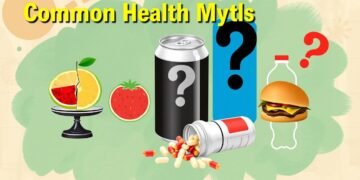In the pursuit of a healthier, more vibrant self, weight management often stands as a common goal. Over the years, an array of over-the-counter (OTC) weight loss pills has flooded the market, each claiming to be the key to shedding those extra pounds effortlessly. These pills promise rapid results, increased metabolism, and a shortcut to the dream body we envision.
But as with any health-related decision, making informed choices about OTC weight loss pills is crucial. This comprehensive guide aims to demystify the world of OTC weight loss supplements, offering you insights into the most prevalent options, their mechanisms, advantages, and potential drawbacks.
We’ll delve into the very ingredients that drive these pills, explore who may benefit from them, and discuss the importance of seeking professional advice before embarking on any weight loss journey. Moreover, we’ll emphasize that OTC weight loss pills are not a one-size-fits-all solution; they come with their own set of considerations, and safety should always be paramount.
Before we venture into the landscape of OTC weight loss pills, remember that no quick fix can replace a sustainable, balanced approach to weight management. These pills should complement, not substitute for, a healthy lifestyle, including a nourishing diet and regular physical activity. Armed with the knowledge within these pages, you’ll be better equipped to make informed choices about your weight loss journey, prioritizing your well-being above all else.
.

While OTC weight loss pills can provide a helping hand, they are not magic bullets. A holistic approach that combines these supplements with a balanced diet and regular exercise remains the gold standard for sustainable weight loss.
The Weight Loss Pill Landscape: A Brief Overview of OTC Weight Loss Pills
In a world where the pursuit of wellness and a healthy lifestyle takes centre stage, the weight loss industry remains a prominent player. Over-the-counter (OTC) weight loss pills have become a ubiquitous presence on pharmacy shelves and in the online marketplace. They promise a swift solution to the age-old quest for shedding excess pounds and achieving the desired physique.

OTC weight loss pills encompass a diverse range of products, each with its own set of ingredients, mechanisms, and claims. These pills are designed to support weight management by targeting various aspects of metabolism, appetite, or fat absorption. While some offer appetite suppression to reduce calorie intake, others aim to increase energy expenditure or prevent the absorption of dietary fats.
Among the most common types are thermogenic fat burners, which strive to boost metabolism and fat oxidation, and appetite suppressants, which help control cravings and reduce overall food consumption. Carb blockers, on the other hand, aim to hinder the absorption of carbohydrates, while fat blockers aim to prevent the absorption of dietary fats.
The allure of OTC weight loss pills lies in their convenience and accessibility. They often appear as an attractive option for individuals seeking a kickstart to their weight loss journey. However, it’s crucial to recognize that the effectiveness of these supplements can vary widely from one product to another. Moreover, while some may offer short-term results, maintaining long-term weight loss demands more comprehensive lifestyle changes.
It’s essential to approach OTC weight loss pills with a discerning eye and a focus on safety. Not all products are created equal, and some may contain ingredients with potential side effects or interactions with other medications. Additionally, results can differ significantly among individuals.
As we navigate the landscape of OTC weight loss pills in this guide, we’ll provide you with insights into the most commonly encountered ingredients, the potential benefits, and the necessary precautions. Remember, the world of weight management is multifaceted, and OTC weight loss pills should complement a holistic approach that includes a balanced diet, regular physical activity, and consultation with healthcare professionals.

Remember, it’s not just about losing weight; it’s about achieving a healthier, happier you. Don’t be swayed by quick fixes; focus on long-term well-being
Common Over-the-Counter Weight Loss Pills: Exploring Top Picks and How They Work
Over-the-counter (OTC) weight loss pills come in various formulations, each with its unique approach to assisting in weight management. These supplements aim to provide support for individuals looking to shed extra pounds without the need for a prescription. In this section, we’ll delve into some of the top picks among OTC weight loss pills and how they operate.
- Thermogenic Fat Burners: These pills are among the most popular OTC options. They contain ingredients like caffeine, green tea extract, or capsaicin, which increase thermogenesis, a process where your body generates heat and burns more calories. By elevating your metabolism, thermogenic fat burners help you burn fat more efficiently.
- Appetite Suppressants: These pills target one of the primary hurdles in weight loss – controlling hunger. Ingredients such as glucomannan, garcinia cambogia, or 5-HTP work to reduce your appetite, helping you consume fewer calories without feeling deprived.
- Carb Blockers: Carb blockers contain compounds like white kidney bean extract that inhibit the digestion of carbohydrates. By preventing the absorption of some carbs, these pills aim to reduce calorie intake and blood sugar spikes after meals.
- Fat Blockers: Similar to carb blockers, fat blockers contain substances like orlistat, which hinder the absorption of dietary fats. They aim to reduce calorie absorption from fat, potentially leading to weight loss.
- Metabolism Boosters: Some weight loss pills focus on revving up your metabolism. They typically contain ingredients like B vitamins, chromium, or L-carnitine, which can increase calorie burning and overall energy expenditure.
- Fat Oxidizers: These pills aim to enhance your body’s ability to break down stored fat. They often include ingredients like L-carnitine, green tea extract, or conjugated linoleic acid (CLA), which promote the utilization of fat for energy.
- Multifunctional Blends: Many OTC weight loss supplements combine several approaches. These blends may contain a mix of thermogenic ingredients, appetite suppressants, and fat burners to provide a more comprehensive weight loss solution.
While OTC weight loss pills can offer support on your journey to shedding pounds, it’s crucial to approach them with realistic expectations. Their effectiveness can vary from person to person, and they are most effective when used in conjunction with a healthy diet and regular exercise. Moreover, it’s advisable to consult with a healthcare provider before starting any weight loss supplement to ensure it aligns with your health goals and medical history.

Before you start any weight loss regimen, always consult with a healthcare professional. Your unique health profile should guide your choices, ensuring both safety and effectiveness.
The Pros and Cons of OTC Weight Loss Pills: Benefits and Potential Side Effects
Over-the-counter (OTC) weight loss pills can offer both benefits and potential side effects, making it essential to weigh the pros and cons before integrating them into your weight management plan.
Pros:
- Convenience: OTC weight loss pills are readily available at pharmacies, supermarkets, and online. They provide a convenient option for those seeking extra support in their weight loss journey without the need for a prescription.
- Appetite Control: Some weight loss pills contain appetite-suppressing ingredients that can help you manage cravings and reduce calorie intake.
- Metabolism Boost: Certain supplements aim to enhance your metabolism, potentially increasing your calorie-burning capacity.
- Motivation: OTC weight loss pills can serve as motivational tools, providing a sense of commitment to your weight loss goals.
Cons:
- Limited Efficacy: The effectiveness of OTC weight loss pills varies among individuals. While some may experience significant results, others may see little to no impact.
- Potential Side Effects: These pills can lead to side effects, including digestive issues, headaches, increased heart rate, and insomnia, depending on the ingredients. Additionally, some may interact with medications you’re already taking.
- Safety Concerns: The lack of stringent regulation for OTC supplements means that not all products undergo rigorous testing. This can raise safety concerns, as some may contain harmful or undeclared ingredients.
- Dependency: Relying solely on weight loss pills may create dependency and discourage the development of sustainable, healthy lifestyle habits like balanced nutrition and regular exercise.
Long-term Considerations:
- Health Monitoring: If you decide to use OTC weight loss pills, regular health monitoring is crucial. Keep track of any side effects and consult with a healthcare provider if you experience adverse reactions.
- Combination Approach: Long-term weight management is most successful when combined with a holistic approach that includes a balanced diet and exercise. OTC supplements should complement, not replace, these foundational practices.
- Safety First: Before starting any weight loss supplement, consult with a healthcare provider, especially if you have underlying health conditions or are taking prescription medications.
- Quality Matters: Choose OTC weight loss pills from reputable brands that follow good manufacturing practices and have a history of safety and effectiveness. Look for third-party testing and certification.

Keep a vigilant eye out for scams and false claims in the world of weight loss supplements. If it sounds too good to be true, it probably is.
When to Use OTC Weight Loss Pills: Ideal Candidates and Precautions
Over-the-counter (OTC) weight loss pills can be appealing for those seeking to shed pounds, but they are not a one-size-fits-all solution. Understanding when to use these supplements, who the ideal candidates are, how to choose the right pill, and when to avoid them is crucial for effective and safe weight management.
Ideal Candidates for OTC Weight Loss Pills:
Not everyone is an ideal candidate for OTC weight loss pills. To determine if they might be suitable for you, consider the following factors:
- Body Mass Index (BMI): Ideal candidates often have a BMI above 30, which is classified as obese. These individuals may benefit from additional support to kickstart their weight loss efforts.
- Lifestyle Factors: OTC weight loss pills can be advantageous for individuals struggling with weight loss due to factors like intense cravings, overeating, or a sedentary lifestyle. They should be seen as a complement to a comprehensive weight management plan that includes a balanced diet and regular physical activity.
- Doctor’s Recommendation: If a healthcare provider recommends OTC weight loss pills based on your specific health needs and goals, it’s a good indication that they might be suitable for you.
- Short-term Solution: OTC weight loss pills are generally intended for short-term use. Ideal candidates view them as a temporary tool to jumpstart their weight loss journey, with the intention of transitioning to a long-term, sustainable approach.
Choosing the Right OTC Weight Loss Pill:
When considering OTC weight loss pills, it’s essential to choose the right one to maximize effectiveness and minimize risks. Here’s how to make an informed decision:
- Read Labels: Examine the product label for ingredients, dosage instructions, and potential side effects. Look for pills with clinically proven ingredients.
- Research Brands: Stick to reputable brands with a history of safety and quality. Research online reviews and consult with a healthcare provider if you’re uncertain.
- Consult with a Healthcare Provider: Before starting any OTC weight loss pill, consult with a healthcare provider, especially if you have underlying health conditions, are taking prescription medications, or are pregnant or breastfeeding.
- Match Ingredients to Needs: Different OTC weight loss pills target various aspects of weight management. Match the ingredients to your specific needs, such as appetite control, metabolism-boosting, or fat absorption reduction.
When to Avoid OTC Weight Loss Pills:
While OTC weight loss pills can offer benefits, there are situations when they should be avoided:
- Medical Conditions: If you have certain medical conditions like heart disease, hypertension, diabetes, or a history of eating disorders, OTC weight loss pills may not be safe. They can interact with your condition or medication.
- Pregnancy and Breastfeeding: It’s best to avoid OTC weight loss pills during pregnancy and breastfeeding, as their safety for the baby is not well-established.
- Young Age: Adolescents and children should not use OTC weight loss pills, as their bodies are still developing, and these supplements may interfere with normal growth.
- Polypharmacy: If you’re already taking multiple medications, the potential for drug interactions increases. Consult with a healthcare provider to assess safety.
- Long-term Reliance: OTC weight loss pills are not meant for extended use. Avoid relying on them as a sole strategy for weight management. Instead, focus on adopting a sustainable, healthy lifestyle.
Precautions and Contraindications:
Consider these precautions and contraindications when contemplating OTC weight loss pills:
- Cardiovascular Issues: Individuals with heart conditions, high blood pressure, or a history of stroke should be cautious, as some weight loss pills can affect the cardiovascular system.
- Psychological Health: If you have a history of mental health issues like anxiety, depression, or eating disorders, using OTC weight loss pills may exacerbate these conditions.
- Allergies: Check the product’s ingredient list for allergens. If you have known allergies to any components, avoid the pill.
- Side Effects: Be aware of potential side effects, which can include digestive problems, insomnia, jitteriness, and increased heart rate. Discontinue use if you experience adverse reactions.
- Consultation: Always consult with a healthcare provider before starting any OTC weight loss pill to discuss potential risks and benefits, especially if you have underlying health concerns.

A Closer Look at Key Ingredients
To make an informed decision about over-the-counter (OTC) weight loss pills, it’s crucial to understand what goes inside these tiny capsules. Key ingredients can vary significantly between different products, and some may have more scientific backing than others.
Understanding What’s Inside the Pill:
- Caffeine: This ubiquitous stimulant is a common ingredient in many OTC weight loss pills. It works by boosting metabolism and increasing the body’s calorie-burning capacity. While caffeine can provide an energy boost and enhance alertness, excessive intake can lead to side effects like jitteriness, nervousness, and increased heart rate. Be cautious if you’re sensitive to caffeine or consume other sources, like coffee or tea.
- Green Tea Extract: Known for its potential antioxidant and metabolism-boosting properties, green tea extract is another prevalent ingredient. It contains catechins, which may aid in fat oxidation. However, the concentration of catechins can vary between products, affecting their effectiveness.
- Garcinia Cambogia: This tropical fruit extract has gained popularity as a weight loss supplement. It’s believed to inhibit an enzyme that helps the body store fat, potentially reducing fat production. However, scientific evidence supporting its efficacy is limited, and results may vary.
- Conjugated Linoleic Acid (CLA): CLA is a type of fatty acid found in meat and dairy products. It’s often included in weight loss pills due to its potential to reduce body fat. While some studies suggest a modest benefit, results can be inconsistent.
- Hydroxycitric Acid (HCA): Derived from the rind of the Garcinia cambogia fruit, HCA is believed to suppress appetite and inhibit fat storage. Research results have been mixed, and it’s not a standalone solution for weight loss.
- Fiber: Some OTC weight loss pills contain fiber to promote a feeling of fullness, reducing calorie intake. While fiber is an essential component of a healthy diet, relying solely on it for weight loss may not be effective.
Healthy Weight Loss Alternatives:
While OTC weight loss pills can play a role in weight management, they are not a magic solution. Achieving and maintaining a healthy weight involves more than just pills. Here are alternative strategies to complement or replace these supplements:
- Balanced Diet: A fundamental aspect of weight management is a balanced diet. Focus on whole, nutrient-dense foods like fruits, vegetables, lean proteins, whole grains, and healthy fats. Portion control and mindful eating can help prevent overconsumption.
- Regular Exercise: Physical activity is essential for burning calories, improving metabolism, and enhancing overall health. Incorporate a combination of cardiovascular exercises, strength training, and flexibility exercises into your routine.
- Behavioral Changes: Address emotional eating, stress management, and unhealthy eating habits through behavioral changes and mindfulness techniques. Identifying triggers for overeating can be instrumental in achieving long-term success.
- Hydration: Adequate water intake is often overlooked but vital for weight management. Drinking water before meals can help control appetite and prevent overeating.
- Sleep: Quality sleep is essential for overall health and weight management. Poor sleep patterns can disrupt hormones related to appetite and increase the likelihood of weight gain.
- Support System: Consider seeking support from a healthcare provider, registered dietitian, or support group specializing in weight management. They can provide personalized guidance and monitor your progress.
- Track Progress: Keep a food diary, track physical activity, and monitor your progress over time. This helps identify patterns and areas for improvement.
- Set Realistic Goals: Be realistic about your weight loss goals. Aim for gradual, sustainable weight loss of about 1-2 pounds per week.
- Mindful Eating: Practice mindful eating by savouring each bite and paying attention to hunger and fullness cues. Avoid distractions while eating, such as watching TV or using electronic devices.
- Stay Informed: Stay informed about the latest research on weight management. Scientific understanding of weight loss continues to evolve, and new approaches and strategies emerge.

Consulting with a Healthcare Professional
When it comes to embarking on a weight loss journey, seeking guidance from a healthcare professional is a crucial step that can make all the difference in achieving your goals safely and effectively.
The Importance of Professional Guidance
Weight loss isn’t one-size-fits-all. Factors such as your current health, medical history, age, and lifestyle all play a significant role in determining the most suitable approach for you. This is where a healthcare professional, such as your primary care physician or a registered dietitian, becomes invaluable.
- Personalized Assessment: Healthcare professionals can conduct a comprehensive assessment to understand your unique circumstances. They consider your medical history, current medications, allergies, and any underlying conditions that may impact your weight loss journey.
- Tailored Plans: Based on this assessment, they can create a personalized weight loss plan that aligns with your specific needs and goals. This plan takes into account not only your physical health but also your emotional and mental well-being.
- Safe and Effective Strategies: Healthcare professionals provide evidence-based strategies that are backed by scientific research. These strategies are not only effective but also safe, reducing the risk of potential health complications associated with drastic weight loss.
- Monitoring Progress: Regular check-ins with your healthcare provider allow for the monitoring of your progress. Adjustments can be made as needed to ensure that you are on the right track.
- Emotional Support: Weight loss can be emotionally challenging. Healthcare professionals offer emotional support, helping you navigate any hurdles or setbacks along the way.
Safety First: Avoiding Scams and Misleading Products
While there are legitimate weight loss products and programs, the market is saturated with scams and misleading claims that promise quick fixes but often deliver disappointment and, in some cases, harm.
Red Flags to Watch For:
- Rapid Weight Loss Promises: Be cautious of products or programs that promise an unrealistic amount of weight loss in a short period. Healthy and sustainable weight loss typically ranges from 1 to 2 pounds per week.
- Lack of Scientific Evidence: Verify the claims made by a product or program. Scientific research should support any product or method you consider. If there’s no credible scientific evidence, approach with scepticism.
- Excessive Restrictions: Avoid diets or plans that involve extreme calorie restriction, exclude entire food groups, or rely on one type of food exclusively. These approaches are typically unsustainable and may lead to nutritional deficiencies.
- Unsafe Ingredients: Check the ingredient list of any supplements or products you’re considering. Some substances may be harmful or interact negatively with medications you’re taking.
- No Individualization: If a product or program doesn’t consider your unique health and lifestyle factors, it may not be the right choice for you.
- Lack of Professional Guidance: Be wary of weight loss programs or products that do not involve healthcare professionals. Professional guidance is vital for ensuring that your weight loss journey is safe and effective.
- Unrealistic Claims: Claims of effortless weight loss without the need for diet or exercise are typically too good to be true. Sustainable weight loss requires a combination of a balanced diet and physical activity.
- Testimonials and Before-After Photos: While testimonials and before-after photos can be compelling, they are not always reliable indicators of a product’s efficacy. They can be manipulated or selectively presented.
- Money-Back Guarantees: Some products or programs offer money-back guarantees. These guarantees can be misleading, as they may come with conditions that make it challenging to obtain a refund.
- Consultation Fees: Be cautious of programs or products that charge high consultation fees without providing substantial value or professional guidance.

In the end, the journey to a healthier weight should be guided by knowledge, diligence, and a commitment to long-term health. Weight loss pills can be a valuable part of that journey, but they should never replace healthy lifestyle choices.
Guiding Principles for a Healthier You
In the pursuit of a healthier and fitter self, making informed decisions is paramount to a successful weight loss journey. We’ve explored the landscape of over-the-counter (OTC) weight loss pills, understanding their mechanisms, pros, cons, and when they may or may not be suitable. Alongside this exploration, we’ve emphasized the significance of consulting with healthcare professionals and being vigilant against scams and misleading products.
The Weight Loss Pill Landscape: Our journey began with an overview of OTC weight loss pills. We delved into the various types of pills available and discussed how they work. It’s essential to comprehend that while these pills can assist in weight loss, they are not magic solutions. They should be part of a holistic approach that includes a balanced diet and regular physical activity.
Common Over-the-Counter Weight Loss Pills: We explored some of the top picks in the world of OTC weight loss pills. These included ingredients such as caffeine, green tea extract, and orlistat. Understanding the active components and their effects is crucial for making informed choices.
The Pros and Cons: Every weight loss method comes with its benefits and potential side effects. While OTC weight loss pills can aid in shedding pounds, they may also lead to side effects and are not suitable for everyone. It’s essential to weigh these factors carefully.
When to Use OTC Weight Loss Pills: We discussed the ideal candidates for OTC weight loss pills. Those who can benefit most are individuals who have struggled to lose weight through lifestyle changes alone and who do not have contraindications. However, consulting with a healthcare professional is critical to ensure safety and efficacy.
Choosing the Right Pill: Selecting the right weight loss pill involves considering your specific needs and any underlying health conditions. There is no one-size-fits-all solution, and professional guidance is key.
When to Avoid OTC Weight Loss Pills: For some individuals, OTC weight loss pills may not be the right choice due to contraindications or other factors. It’s crucial to know when these pills should be avoided.
A Closer Look at Key Ingredients: Understanding the ingredients in weight loss pills is vital. Some substances can interact with medications or cause adverse effects.
Healthy Weight Loss Alternatives: While OTC weight loss pills can be part of a weight loss strategy, a balanced diet and regular exercise remain the cornerstones of a healthy lifestyle.
Consulting with a Healthcare Professional: Seeking guidance from a healthcare professional ensures that your weight loss journey is safe, effective, and tailored to your unique needs. They provide personalized assessments and monitor your progress.
Safety First: Avoiding Scams and Misleading Products: We highlighted red flags that signal potentially unsafe products or programs. Avoiding scams and being critical of extravagant claims are essential for protecting your health and wallet.
In conclusion, the journey toward achieving and maintaining a healthy weight is not a solitary one. It’s a path best navigated with knowledge, professional guidance, and a discerning eye for misleading promises. OTC weight loss pills can play a role in this journey, but they should always be part of a comprehensive strategy that prioritizes your well-being. Remember, the choices you make should align with your unique circumstances and contribute to a healthier, happier you.


























































Discussion about this post